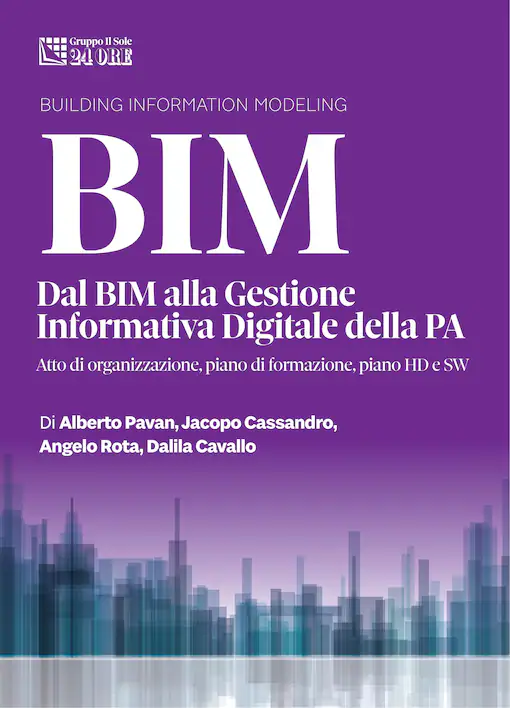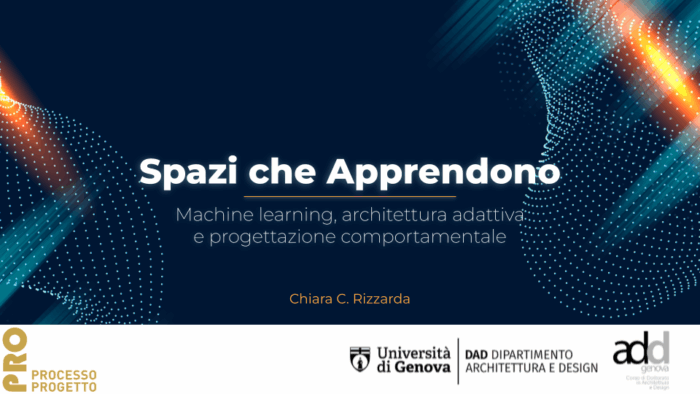 ';
view
';
view
"All this he saw, for one moment breathless and intense, vivid on the morning sky; and still, as he looked, he lived; and still, as he lived, he wondered."
― Kenneth Grahame, The Wind in the Willows
“Advanced BIM”: what does that even mean? “Advanced BIM” is one of those expressions that sound authoritative and yet, when you ask what it actually describes, the answers become very vague very quickly. The statement doesn’t mean anything, and it drives me crazy equally quickly....
1. Prologue: The Add-On Debate (or, a False Choice) 1.1 “Use an Add-On” vs “Everyone Should Code” There are two stock answers that reliably surface whenever automation in BIM is mentioned: The second one is disarmingly simple: spend those five bucks and just use an...
I have a problem with the artistic current of the Macchiaioli, and my problem is that I always get them mixed up with Divisionism. And I don’t like Divisionism, so I almost skipped this exhibition, and that would have been a shame because I do...
A piece that started as a reflection around machine, human redundancies and artificial intelligence, and then all of a sudden started talking about smart working instead. Happy Birthday Modern Times A few weeks ago, Charlie Chaplin’s Modern Times celebrated its 90th anniversary, and that sprang...
A few weeks ago, I wrote about an installation with pieces by Giorgio Armani at the Pinacoteca di Brera, here in Milan, and as a matter of fact that wasn’t the only show around fashion I visited, which is unlike me. While I was in...
Last month, I wrote a couple of things aimed at my local market, specifically on the updated norms on BIM for an Exchange Information Requirements and what should be specified inside. In one of those, I mentioned a principle in passing: that the as-built model...

Mentor and Tutor on Digital Transformation in the Construction Industry, Reader and Writer, Gamer
 ';
view
';
view
 ';
view
';
view
 ';
view
';
view
 ';
view
';
view
 ';
view
';
view
 ';
view
';
view
“Pay heed to the tales of old wives. It may well be that they alone keep in memory what it was once needful for the wise to know.”
I arose the next morning almost at daybreak, and rushed to my microscope, I trembled as I sought the luminous world in miniature that contained my all. Animula was there. I had left the gas-lamp, surr...
Byung-Chul Han is a contemporary German philosopher born in Korea whose work explores the transformation of subjectivity, power, and social relations in late modern and digital societies. In the Swarm...
I discovered The Apothecary Diaries through the anime on Netflix: I generally don’t like them but we’re not getting good animation, I was desperate, and what caught my eye were the beautif...
This is the second book I read by this author, and I bought it for two reasons: Alas, I was disappointed on both fronts. The preface is very good andframes the (excellent) graphics in this book as com...
The three months succeeding Simon’s catastrophe I devoted night and day to my diamond lens. I had constructed a vast galvanic battery, composed of nearly two thousand pairs of plates: a higher p...
I love books from this publisher: they mostly curate publications of Gothic fiction coming from the public domain, but they’re splendidly curated, translated with love, and assembled in lovely p...
An astonishing anthology of what’s being called “Arabic futurism” because, as the preface explains well, the term “science fiction” is an invention of other cultures, and...
There was a light in Simon’s room as I entered my house. A vague impulse urged me to visit him. As I opened the door of his sitting-room unannounced, he was bending, with his back toward me, ove...
Apparently Robert Louis Stevenson was written into my stars, this January: after reading Larsson’s take on Long John Silver, I wanted to read something Japanese and I picked a random volume from...
Two evenings after this, thanks to an arrangement by letter and the promise of an ample fee, I found Madame Vulpes awaiting me at her residence alone. She was a coarse-featured woman, with keen and ra...
Before I start laying out what I thought of this book, let me be upfront about a couple of things. With these premises, you can imagine my surprise when I found myself avidly reading the many sections...
My first step, of course, was to find suitable apartments. These I obtained, after a couple of days’ search, in Fourth Avenue; a very pretty second floor, unfurnished, containing sitting-room, b...
We Were Always Here: on Memory, Erasure, and the Persistence of Queer History All month long, we have journeyed through scroll and scripture, painting and poetry, ruin and reliquary, gathering voices,...
Letters in Exile: Rumi’s Longing for Shams al-Din Tabrizi “Since Shams appeared,my heart has been a hundred thousand burning lamps.The world is a candle, and I am the wick:I am consumed in the fla...
The Love That Wrote Itself: Hadewijch and the Ecstasy of the Unknown Beloved “And she beheld me with love,and made me forget all my suffering.”— Hadewijch of Brabant, Visions and Poems (13th...
Saint Wilgefortis and the Bearded Woman of Lützen: Gender Miracles in Devotional Art A crucified female saint — dressed in noble garments, arms outstretched, and crowned with an improbable beard �...
Christina of Sweden: The Queen Who Refused to Be a Woman Crowned queen at the age of six and ruling in her own right by eighteen, Christina of Sweden stood as one of the most enigmatic and transgressi...
She Knew Better than Any Man: Female Lovers in Brantôme’s Courtly Chronicles “This reminds me of certain women who love their companions so dearly that they would not share them for all the wealt...
The Noble Knight: Gender Ambiguity and Queer Aesthetics in the Portrait of Doña Catalina de Erauso Known as “La Monja Alférez” (The Lieutenant Nun), Catalina de Erauso defied every expectation o...
Veiled in Wit: Queer Subtext and Gender Play in The Heptameron Often dubbed “the French Decameron,” The Heptameron is a collection of 72 stories told by a group of noble travellers, written by Mar...
Not by Nature, but by Habit: Christine de Pizan and the Complexity of Gender Roles “If it were customary to send little girls to school and teach them the same subjects as boys are taught, they woul...
The Sword and the Stage: La Maupin, the Scandalous Virtuosa of Baroque France Julie d’Aubigny, better known as La Maupin, was a French opera singer, expert swordswoman, and outlaw who lived as boldl...
As Blossoms Fall: The Poetry of Ephemeral Love in Nanshoku Ōkagami “Their sleeves were soaked with tears, not from shame, but from knowing they had only this one night. In the garden, plum blossoms...
In the Courtyard at Dusk: Female Intimacy in Mughal Miniature Painting In the world of the Mughal court, the zenana was a secluded space that offered elite women both constraint and community. Mughal ...
As October draws to a close, so too does our month-long journey through haunted halls, spectral visions, and uneasy hearts. This Spooktober, we’ve celebrated a remarkable group of writers: Charlotte...
We close the month as we started it: with Elizabeth Gaskell. The Open Door is possibly her most famous ghost story. Some people do not believe in ghosts. For that matter, some people do not believe in...
It was a mystery to me, but not to the other doctors. They took, as was natural, the worst possible view of the matter, and accepted the only solution which the facts seem to warrant. But they are men...
ELSIE was always lonely, but her desolation seemed more poignant when the day was sunny. Elsie lived with her grandmother in a large house at Hampstead. She thought that there could not be, anywhere, ...
When the rumours first began, I can’t tell you. They must have had a beginning: but no one recollected when the beginning was. It was said that curious noises were heard in the neighbourhood of ...
It stood on the left of the road as you went towards Alcester: a good-looking, red-brick house, not large, but very substantial. Everything about it was in trim order; from the emerald-green outer ven...
Better known by her pen name Mrs. Henry Wood, Ellen Wood (1814–1887) was a Victorian novelist whose works reached an immense popular audience. Her most famous book, East Lynne (1861), became a sensa...
The light had been put out on the stairs. Usually, when he returned late to spend the night in his rooms, he found it burning. Now he had to make his way slowly, striking matches as he went up the old...
I was riding along one autumn day through a certain wooded portion of New York State, when I came suddenly upon an old stone house in which the marks of age were in such startling contrast to its unfi...
Nest revived during the warm summer weather. Edward came to see her, and stayed the allotted quarter of an hour; but he dared not look her in the face. She was, indeed, a cripple: one leg was much sho...
Another spooky story in two parts by Elizabeth Gaskell. Of a hundred travellers who spend a night at Tre-Madoc, in North Wales, there is not one, perhaps, who goes to the neighbouring village of Pen-M...
Today, we feature another spooky story by Marjorie Bowen. When Maitland first saw the house the poppies were in full bloom; he had never before seen so many blooming together; the field was a sheet of...
This is not a celebration. Every year, November 25th marks the International Day for the Elimination of Violence against Women, and it opens the door to the 16 Days of Activism against Gender-Based Vi...
Today is Human Rights Day and the last day on my reading list. I’ve got a treat for you. And tomorrow I’ll give you a sneak peek of the BIM notebooks. Drawing Power: Women’s Stories ...
I don’t have much time today (it was bound to happen) but I can still throw something out there as part of the reading list. We’re almost there. Tomorrow is Human Rights Day. Chlorine Gard...
On October, 10th – International Mental Health Day – I had the chance of writing how unsafe and unhealthy the construction industry can be. I skimmed again on the surface of this topic on...
After Lighter than my Shadow, and as I feel that body shaming is one of the forms of violence and abuse we often overlook, on today’s reading list I have another graphic novel about eating disorders...
As the Crow Flies by Melanie Gilman Melanie Gillman’s webcomic about a queer, black teenager who finds herself stranded in a dangerous and unfamiliar place: an all-white Christian youth backpack...
It’s December 5th and I know I should be remembering something, but I can’t remember what. I probably forgot someone’s birthday and if you’re reading this… sorry, I think...
On November 25th, the International Day for the Elimination of Violence Against Women, I announced taht I am going to collect all the articles I wrote on BIM since 2015 and that all profits from the ...
It’s December (can you believe it?) And I’m struggling with my committment of providing you with a little something every day, going from November 25th to December 10th, from the Internati...
Happy 1st day of December, darlings. I continue with my reading list of comic books by artists talking about gender biases, integration and diversity. Today on the reading list… Passing for Hu...
I continue along the line of what is becoming a reading list on graphic novels around the subject of diversity, gender-based violence and integration in general. Today… The Hookah Girl and Other...
Day 6, my reading list continues. November, 25th was the International Day for the elimination of violence against women and I‘m trying to bridge it together with December, 10th (International Hu...
Fifth day of my committment. November, 25th was the International Day for the elimination of violence against women and we try to make a run for December, 10th (International Human Rights Day) by mak...
I follow through my committment, on this fourth day. November, 25th was the International Day for the elimination of violence against women and we try to make a run for December, 10th (International ...
Take It as a Compliment by Maria Stoian Bringing together the voices of males and females of all ages, the stories in this collective graphic memoir reflect real life experiences of sexual abuse, viol...
Michael Godwin’s farm lay tucked away comfortably in a hollow of the South Downs. The downs swept up-wards in all directions around it, and on one side beyond was the sea. The sound of it as it ...
A small crowd of gold-diggers stood in front of Lowry’s shanty as a horse and sulky rattled up the sand track through the mulga. The driver was Lowry, and a murmur of excitement ran through the ...
It was the last house in Beauchamp Row, and it stood several rods away from its nearest neighbour. It was a pretty house in the daytime, but owing to its deep, sloping roof and small bediamonded windo...
When Joe Darby chucked his billet down in golden Ballarat,And set out with many others for the rush at Hard-up Flat,He was not exactly worried with those monetary caresThat accumulate like rabbits on ...
“I never heard of a woman’s bein’ saxton.” “I dun’ know what difference that makes; I don’t see why they shouldn’t have women saxtons as well as men sax...
No one knew who had admitted the old man. He was suddenly there, in the chimney corner, warming his hands before the glow of the Yule log. The guests were a little weary with singing and laughing. The...
“Throne Hotel, Harrogate,“September 8th, 1911. “DEAR OLD BRUCE,—What wondrous weather we are still having! I have shoved this delightful desk close up to the open window, to see a bit more of ...
“Throne Hotel, Harrogate,“September 7th, 1911. “DEAR BRUCE,—I do believe I’ve got it! If so it’s a great deal more (or less) than I deserve for one of the rottenest things I ever did in al...
“Throne Hotel, Harrogate,“September 7th, 1911. MY DEAR BRUCE,—The day before yesterday I finished that thing for the Christmas number of the Vivid, after nearly a fortnight’s hard grind; late ...
NOTHING could have been more neutral, more dull; the scene was the lecture hall of one of our most learned societies, as austere and grim a place as the cold mind and lifeless taste of Science could c...
Tom Mountstephen was dressed in his very best—a black coat, a tie of blue satin studded with veritable planets, and in it a new zodiacal sign—a fox in full career, that formed the head of a pin. T...
Linley was fond of collecting what he called “raw material” and, as a fairly successful barrister, he had good opportunity for doing so. He despised novelists and romancists, yet one day h...
“Wonder what’s goin’ on in the church?” Gilman Marlow stopped and stared slowly over at the church. It was a little white building with five pointed windows on each side. The w...
The following story is found in the Gretla, an Icelandic Saga, composed in the thirteenth century, or that comes to us in the form then given to it; but it is a redaction of a Saga of much earlier dat...
I was born at Sawley, where the shadow of Pendle Hill falls at sunrise. I suppose Sawley sprang up into a village in the time of the monks, who had an abbey there. Many of the cottages are strange old...
A considerable time ago I was invited to a little evening gathering, where our friend Vincent was, along with some other people. I was detained by business, and did not arrive till very late. I was al...
“I don’t s’pose you air goin’ to do much Christmas over to your house.” Mrs. Luther Ely stood looking over her gate. There was a sweet, hypocritical smile on her little t...
She who had been Florence Flannery noted with a careless eye the stains of wet on the dusty stairs, and with a glance ill used to observance of domesticities looked up for damp or dripping ceilings. T...
The Chrightons were very great people in that part of the country where my childhood and youth were spent. To speak of Squire Chrighton was to speak of a power in that remote western region of England...
Martha Pym said that she had never seen a ghost and that she would very much like to do so, “particularly at Christmas, for you can laugh as you like, that is the correct time to see a ghost....
©© This blog and all original content within it are distributed via a Creative Commons International License Attribution – Share Alike 4.0.
Whole articles cannot be copied on third-party websites, but any reference is welcome.
All original material by others is included only within the fair use boundaries, which grant the right to use copyrighted works for purposes such as criticism, comment, news reporting, teaching, scholarship, or research, and therefore is not intended as an infringement of copyright. For any controversy and claims, please contact the author via the comments, and actions will be taken to safeguard intellectual property at its best.